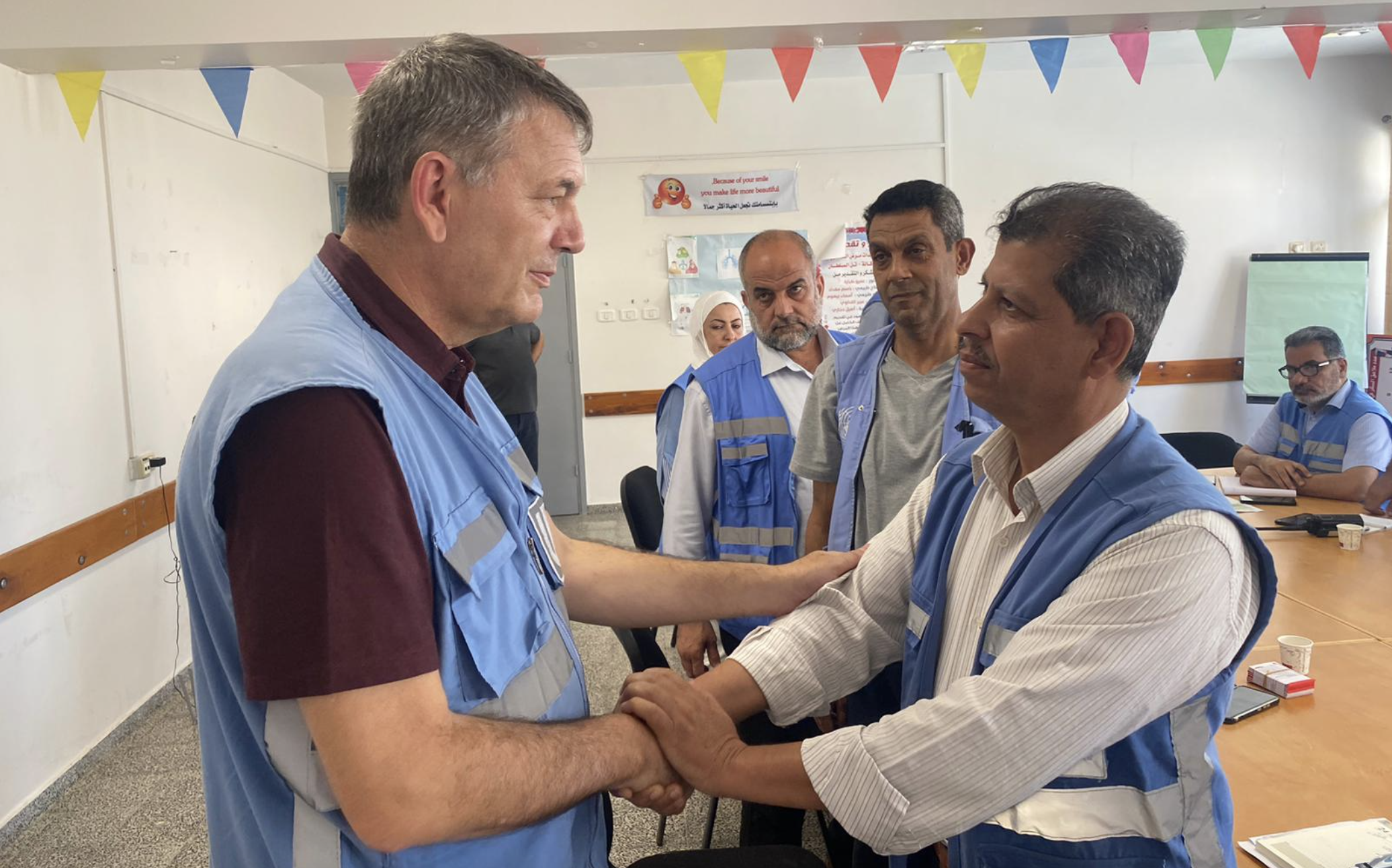70 UNRWA staff members have been killed by Israeli airstrikes on Gaza in the past three weeks.
The scale of the tragedy in the besieged Gaza Strip has reached “unprecedented” levels, a top UN official warned during his first visit to the enclave on Wednesday.
Philippe Lazzarini, the Commissioner-General of the United Nations Relief and Works Agency for Palestine Refugees in the Near East (UNRWA) said he faced “one of the saddest days in my humanitarian work” during his trip.
“The levels of distress and the unsanitary living conditions were beyond comprehension. Everyone was just asking for water and food,” he said, describing the grim conditions after nearly a months-long brutal Israeli war on Gaza.
During his trip, Lazzarini paid a visit to a school that had become a sanctuary for thousands of Palestinians seeking refuge from the Israeli bombing campaign.
UNRWA said around 670,000 individuals are taking shelter in almost 150 of its congested facilities spread across Gaza. So far, at least 70 UNRWA staff members have been killed in Israel’s relentless bombing.
In a statement, the UN agency joined global calls for an immediate humanitarian ceasefire in the Gaza Strip, labelling it “a matter of life and death”. However, Lazzarini said such calls have appeared to be “falling on deaf ears. A humanitarian ceasefire is long overdue.”
“Without it, more people will be killed, those who are alive will endure further losses, and the once vibrant society will be in grief, forever,” he added. Despite this, he vowed to “continue to stand with Palestine Refugees and the rest of the Palestinian communities.”
On October 8, Israel imposed a siege on Gaza’s more than 2.3 million population, blocking all access to food, water and electricity. Since then, only a limited number of aid trucks have been allowed in through the Rafah crossing, though UN officials say this has been “a drop in the ocean compared to the vast scale of needs.”
Lazzarini also emphasised that the present humanitarian response was grossly insufficient, stating, “More than ever, we need a meaningful humanitarian response to prevent people from dying because of the siege. I call once again for urgent fuel deliveries.”
Last week, Oxfam warned that starvation is being used a “weapon of war” in the besieged Gaza Strip and called on Israel to allow essential supplies to enter the territory, emphasising the dire consequences of the current situation.
Oxfam’s statement on Wednesday revealed only “two percent of food that would have been delivered has entered Gaza since the total siege.”
The British-founded charitable organisation estimates that approximately 104 trucks per day are urgently needed to provide sustenance to the desperate population.
“The situation is nothing short of horrific – where is humanity? Millions of civilians are being collectively punished in full view of the world, there can be no justification for using starvation as a weapon of war. World leaders cannot continue to sit back and watch, they have an obligation to act and to act now,” said Sally Abi Khalil, Oxfam’s Regional Middle East Director.
“Every day the situation worsens. Children are experiencing severe trauma from the constant bombardment, their drinking water is polluted or rationed and soon families may not be able to feed them too.”
“How much more are Gazans expected to endure?” she added.
Since the start of the war on October 7, Israel has killed at least 8,805 Palestinians, including 3,648 children. Despite global calls for an urgent ceasefire, Israel has recently ramped up its airstrikes in recent days, targeting hospitals, schools and refugee camps housing thousands of civilians, many of whom children.
Simultaneously, Israeli occupation forces have been making concerted attempts to make military inroads into Gaza with plans for a comprehensive ground invasion.
Hamas fighters have been resisting these advances and 17 Israeli soldiers have been confirmed killed, marking the highest toll in recent times.







